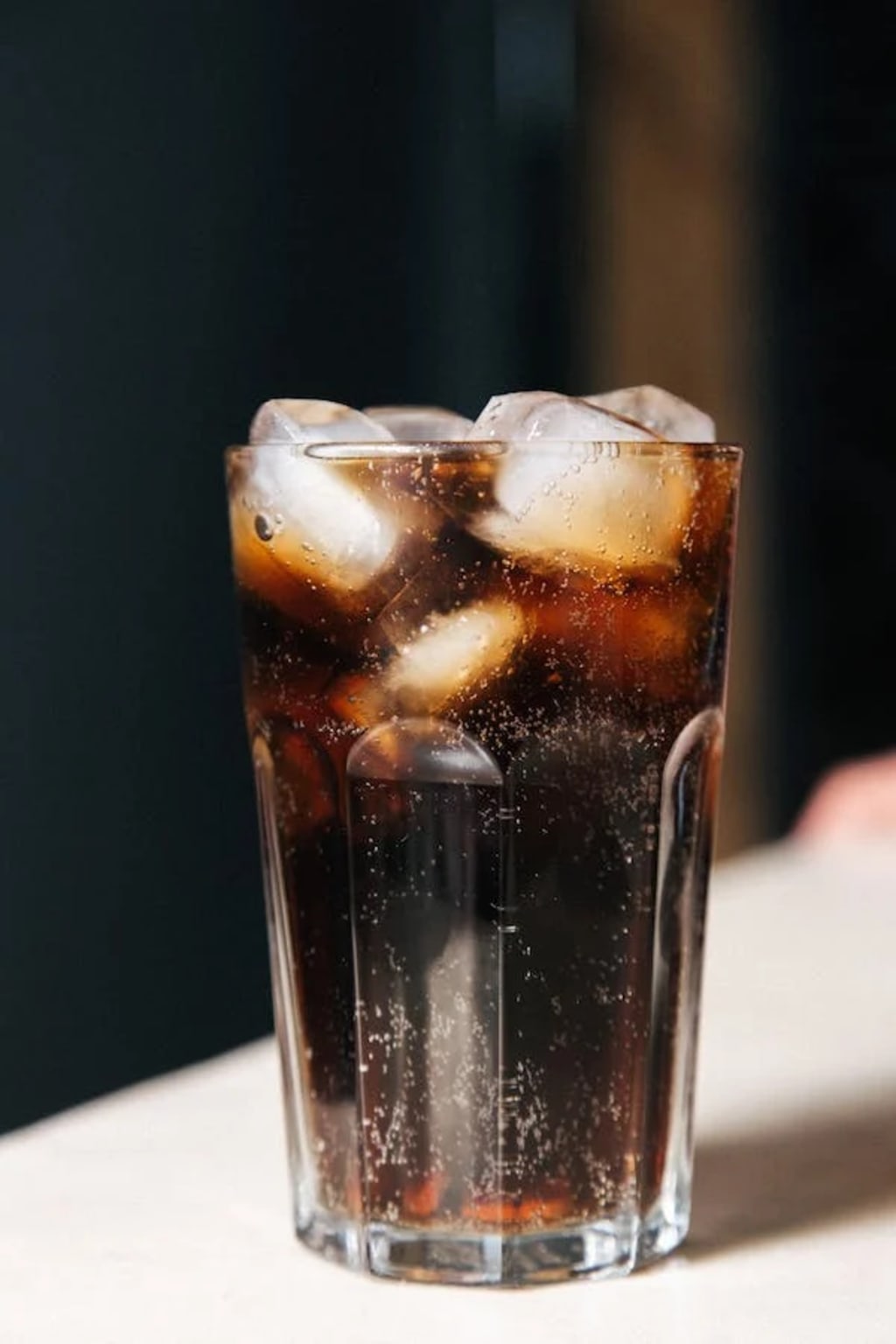THE HIDDEN TRUTH ABOUT SOFT DRINKS
A CLOSER LOOK AT THEIR INGREDIENTS

INTRODUCTION
Soft drinks have become an integral part of our daily lives, readily available in nearly every corner of the world. Brands like Coca-Cola and PepsiCo have a global presence, and their products are consumed by people of all ages, from children to senior citizens. In this article, we aim to delve into the ingredients commonly found in soft drinks, unraveling the myths, and shedding light on the potential health risks associated with their consumption.
DISPELLING MYTHS
One common myth is that soft drinks have been derogatorily referred to as "toilet cleaner" due to the presence of certain acids. It's important to clarify that this comparison is misleading. Soft drinks contain citric and phosphoric acids, which are also found in nature, such as in lemons and oranges. These acids serve as flavor enhancers and act as preservatives to prevent bacterial growth, much like how they're used in some household cleaners. However, comparing soft drinks to toilet cleaners based solely on these shared ingredients is a gross oversimplification.
The pH level of soft drinks is another aspect often brought up in discussions. The pH level is a measure of acidity, and it's true that soft drinks are acidic, with a pH of around 2.5. But, natural substances like lemon juice have a similar or even lower pH level. The key takeaway is that the pH level alone does not make soft drinks equivalent to toilet cleaners.
THE REAL ISSUE: EXCESSIVE SUGAR
The real concern with soft drinks is their high sugar content. Let's take the example of a 600ml bottle of Mirinda, which contains a staggering 82.8 grams of added sugar. To put this into perspective, the recommended daily limit for added sugar intake is zero, according to the American Heart Association. Even if we consider the daily limits for added sugar (36 grams for men and 25 grams for women), a single bottle of Mirinda exceeds these limits, potentially leading to various health issues over time.
Consuming excessive added sugar can result in a range of health problems, including joint pain, premature aging, liver damage, Type 2 diabetes, pancreatic issues, kidney failure, an increased risk of heart attacks, and obesity. It's worth noting that excessive sugar consumption can lead to addiction, with some studies comparing sugar addiction to the addiction to drugs.
THE HIDDEN INGREDIENTS
Beyond sugar, soft drinks contain various other ingredients, some of which have raised concerns. Let's take a closer look at some of these:
1. Caramel: Caramel gives soft drinks their characteristic dark color. However, studies have linked caramel to cancer due to the formation of 4-Methylimidazole (4-MI) during its production. Some countries have set limits on 4-MI in food and beverages.
2. Artificial Colors: Many soft drinks contain synthetic food colors like Sunset Yellow FCF (E110), which have been associated with hyperactivity in children. Some countries have banned these colors, but regulations vary.
3. Preservatives: Sodium Benzoate (E211), commonly used as a preservative, can lead to the formation of benzene when it reacts with ascorbic acid. Benzene is a known carcinogen and has raised concerns.
4. Phosphoric Acid: While not inherently harmful, phosphoric acid can contribute to dental erosion when consumed in large quantities, leading to tooth damage.
5. Acidity Regulators and Stabilizers: Soft drinks contain various additives, including acidity regulators and stabilizers, which maintain their homogeneity and consistency. While not necessarily harmful, these additives contribute to the overall chemical composition of the drinks.
THE PATH FORWARD
To address the health risks associated with soft drinks, it is essential to reduce their consumption and opt for healthier alternatives. Water is the best replacement for sugary beverages, as it not only quenches your thirst but also supports your overall well-being. Transitioning to water may take time as your taste buds adjust, but it's a worthwhile change for your health.
CONCLUSION:
Soft drinks have become ubiquitous, but the hidden truth about their ingredients and their potential health risks should make us reconsider their consumption. While some myths about soft drinks have been debunked, the excessive sugar content and other additives remain concerning. By making informed choices and opting for healthier alternatives like water, we can take better care of our health and reduce the risks associated with sugary beverages. Share this knowledge with your friends and family so that they too can make informed decisions about what they consume. Your health is in your hands, and making wise choices is the first step toward a healthier, happier life.
About the Creator
Enjoyed the story? Support the Creator.
Subscribe for free to receive all their stories in your feed. You could also pledge your support or give them a one-off tip, letting them know you appreciate their work.





Comments (1)
Great research! Now I know what ingredients to look for